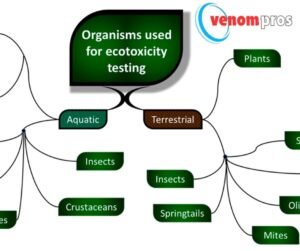
Strategic Toxicologist for Health and Safety Compliance: Navigating Complex Risks for a Safer Future
In today’s world, where industries are rapidly evolving and environmental concerns are growing, the role of a Strategic Toxicologist for Health and Safety Compliance is more critical than ever. This position is essential for managing the risks associated with toxic substances and ensuring that safety standards are not only met but exceeded. This article explores what it means to be a Strategic Toxicologist, the responsibilities involved, and the skills needed to excel in this important role.
What Does a Strategic Toxicologist Do?
A Strategic Toxicologist is primarily responsible for developing and implementing strategies that minimize the risks associated with exposure to harmful substances. Their role is a blend of scientific experti
se and strategic planning, aimed at protecting both people and the environment from potential hazards.
Key Responsibilities
1. **Risk Assessment and Management**
At the heart of a Strategic Toxicologist’s role is risk assessment. This involves evaluating the potential hazards of chemicals and substances, understanding their toxicity, and predicting their impact. Using data from laboratory studies,
historical exposure records, and scientific research, toxicologists identify potential risks and develop strategies to manage these risks effectively. This could mean adjusting safety procedures, recommending changes in materials, or implementing new safety technologies.
2. **Ensuring Regulatory Compliance**
Strategic Toxicologists must ensure that their organizations comply with both local and international regulations, such as OSHA standards in the United States or the REACH regulation in Europe. They interpret these regulations, provide guidance on compliance strategies, and ensure that safety practices are always up-to-date with current laws. Staying on top of regulatory changes is vital for preventing legal issues and maintaining a good reputation.
3. **Developing Policies and Procedures**
Crafting and implementing policies related to chemical safety is a significant responsibility. Strategic Toxicologists work with other departments, like environmental health and safety teams, to create strategies that align with both organizational goals and regulatory requirements. They continuously review and update these policies to reflect the latest scientific advancements and regulatory changes, ensuring that their organization remains at the forefront of safety practices.
4. **Training and Education**
Strategic Toxicologists design and deliver educational programs to ensure that employees understand the risks associated with chemicals and know how to handle them safely. Effective training helps to build a culture of safety within the organization, red
ucing the likelihood of accidents and ensuring that all staff members are equipped with the knowledge they need to work safely.
5. **Incident Response and Investigation**
In the event of a chemical spill or exposure incident, Strategic Toxicologists are often at the forefront of the response efforts. They investigate the cause of the incident, assess the associated health risks, and implement measures to mitigate any harm. Their expertise is crucial for managing crises efficiently and ensuring that appropriate actions are taken to protect health and minimize environmental impact.
Essential Skills and Qualifications
To be effective in this role, a Strategic Toxicologist must possess a blend of technical and strategic skills:
1. **In-depth Knowledge of Toxicology**
A thorough understanding of toxicology is fundamental. This expertise allows toxicologists to assess risks accurately and develop informed strategies to manage them.
2. **Expertise in Regulatory Standards**
Strategic Toxicologists need to interpret and apply these regulations effectively, ensuring that their organizations comply with all legal requirements. Keeping up-to-date with regulatory changes and understanding their implications is a key part of the role.
3. **Analytical and Research Skills**
Strong analytical skills are necessary for interpreting complex data and conducting thorough risk assessments. Experience in scientific research is also valuable, as it enables toxicologists to evaluate the toxicity of substances based on evidence and develop data-driven strategies.
4. **Strategic Thinking**
Strategic Toxicologists need to balance immediate risk management needs with broader organizational goals, ensuring that their strategies are both effective and aligned with overall business objectives.
5. **Communication and Training Abilities**
Effective communication is crucial for a Strategic Toxicologist. They must be able to explain complex scientific information to non-experts and develop training programs that are both informative and engaging.
6. **Problem-Solving Skills**
The role often involves tackling complex and unexpected issues. Strong problem-solving skills are necessary for developing innovative solutions to manage risks and address compliance challenges. This might involve coming up with new safety measures or finding ways to improve existing procedures.
The Impact on Health and Safety
The contributions of a Strategic Toxicologist have a significant impact on health and safety. By proactively identifying and managing risks, they help prevent adverse health effects and environmental damage. Their work ensures that organizations not only meet but often exceed safety standards, thereby protecting employees, consumers, and the broader community.
Conclusion
The role of a Strategic Toxicologist for Health and Safety Compliance is both challenging and vital. It requires a unique combination of scientific expertise, strategic insight, and practical skills to manage toxicological risks effectively. By developing and implementing safety strategies, ensuring regulatory compliance, and educating others, Strategic Toxicologists play a crucial role in safeguarding health and ensuring that industries operate safely and responsibly. As the world continues to face new environmental and industrial challenges, the expertise of Strategic Toxicologists will remain essential in creating a safer, healthier future for everyone.
Also read this;>Strategic Toxicologist for Health and Safety Compliance









